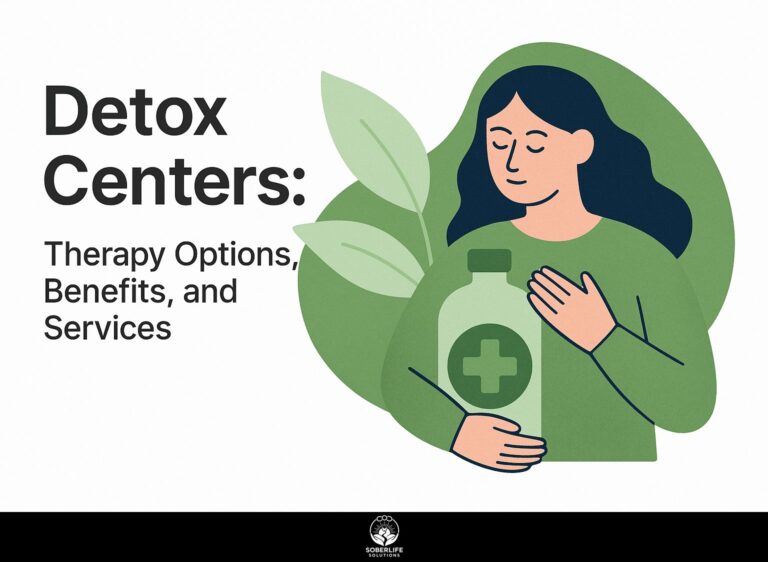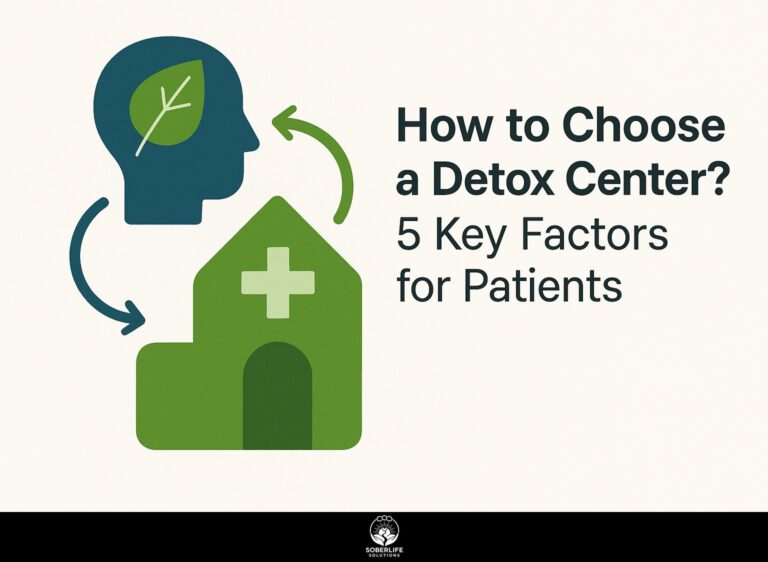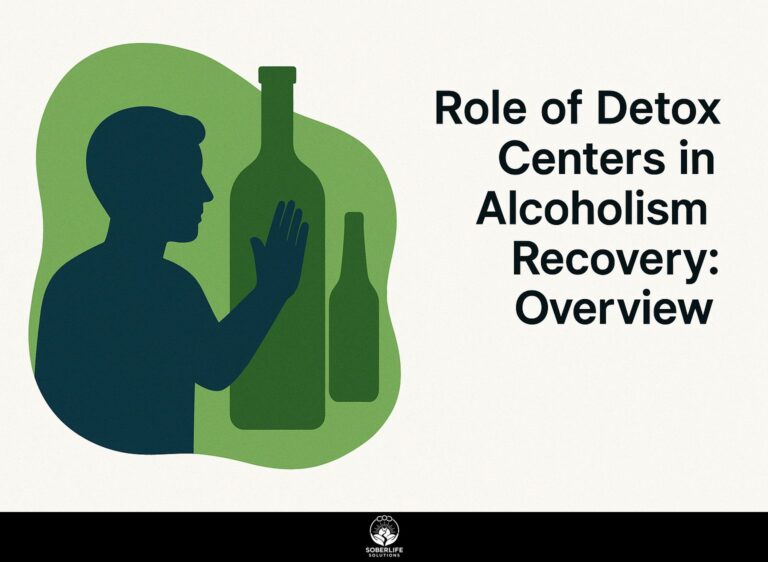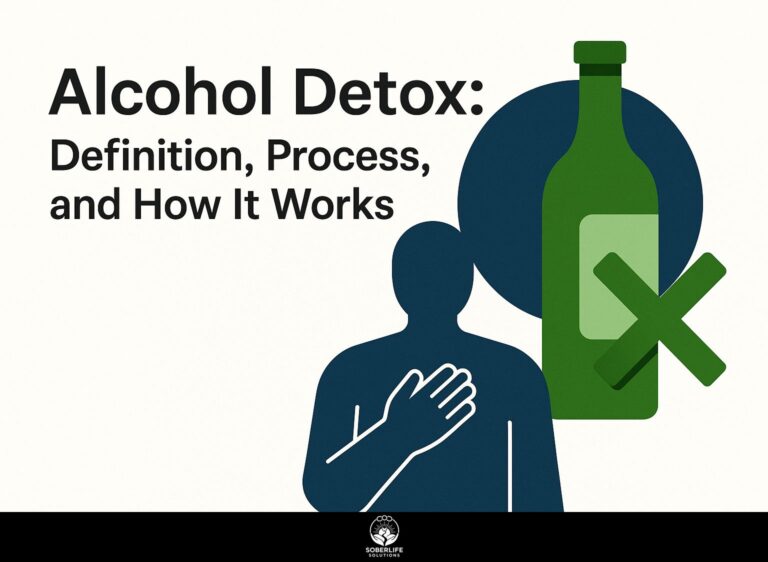Faith-Based Detox Programs: Definition, Approach, and Benefits
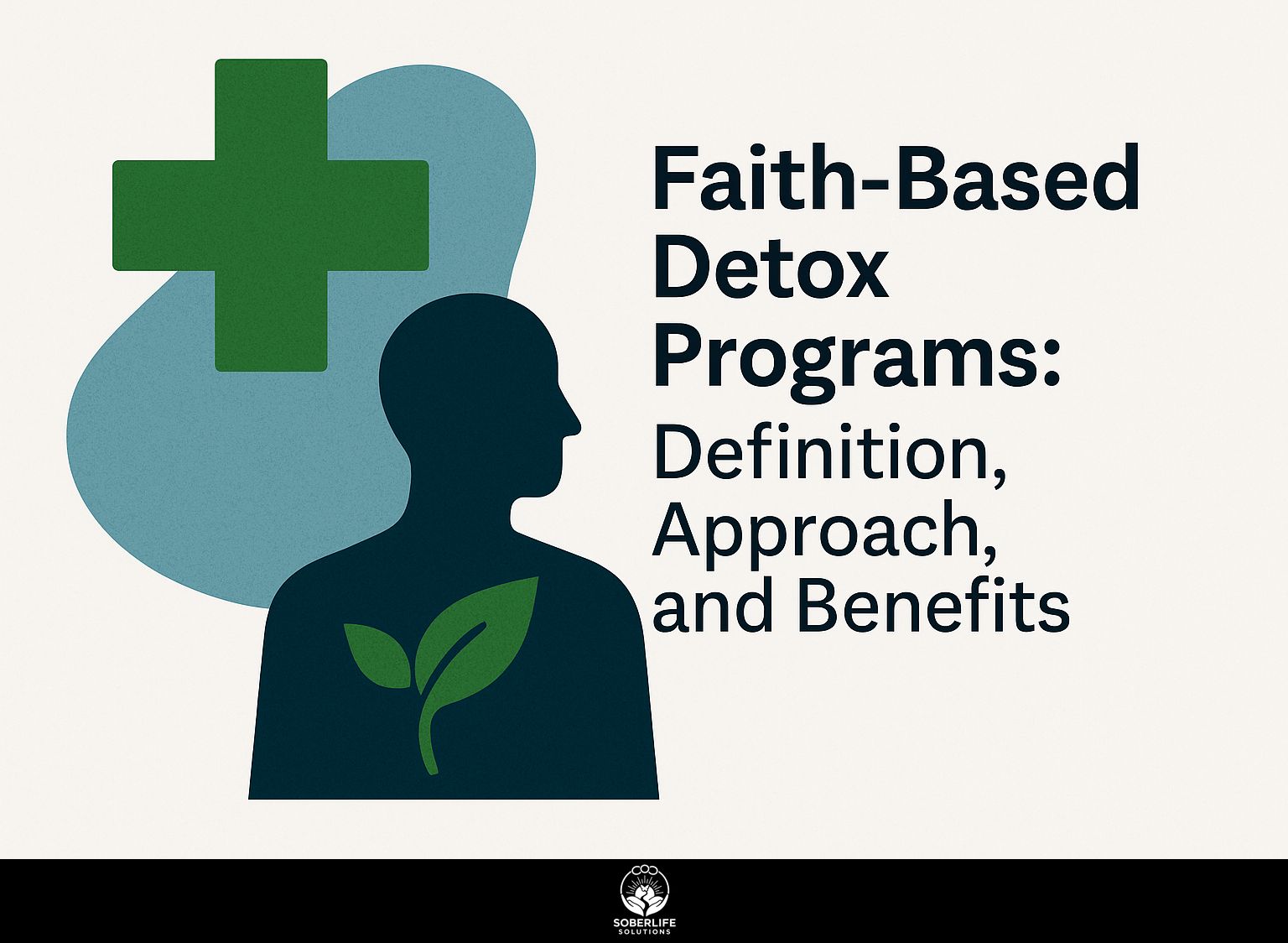
Overcoming substance abuse is difficult, yet detox programs that include faith can provide a meaningful way to treat addiction. By integrating spiritual practices and Christian counseling, programs like Alcoholics Anonymous and Celebrate Recovery provide supportive communities for healing. This article will look at the meaning, special methods, and many advantages of faith-based recovery, showing how these programs can help with spiritual development and emotional healing on the way to sobriety.
Key Takeaways:
Definition of Faith-Based Detox
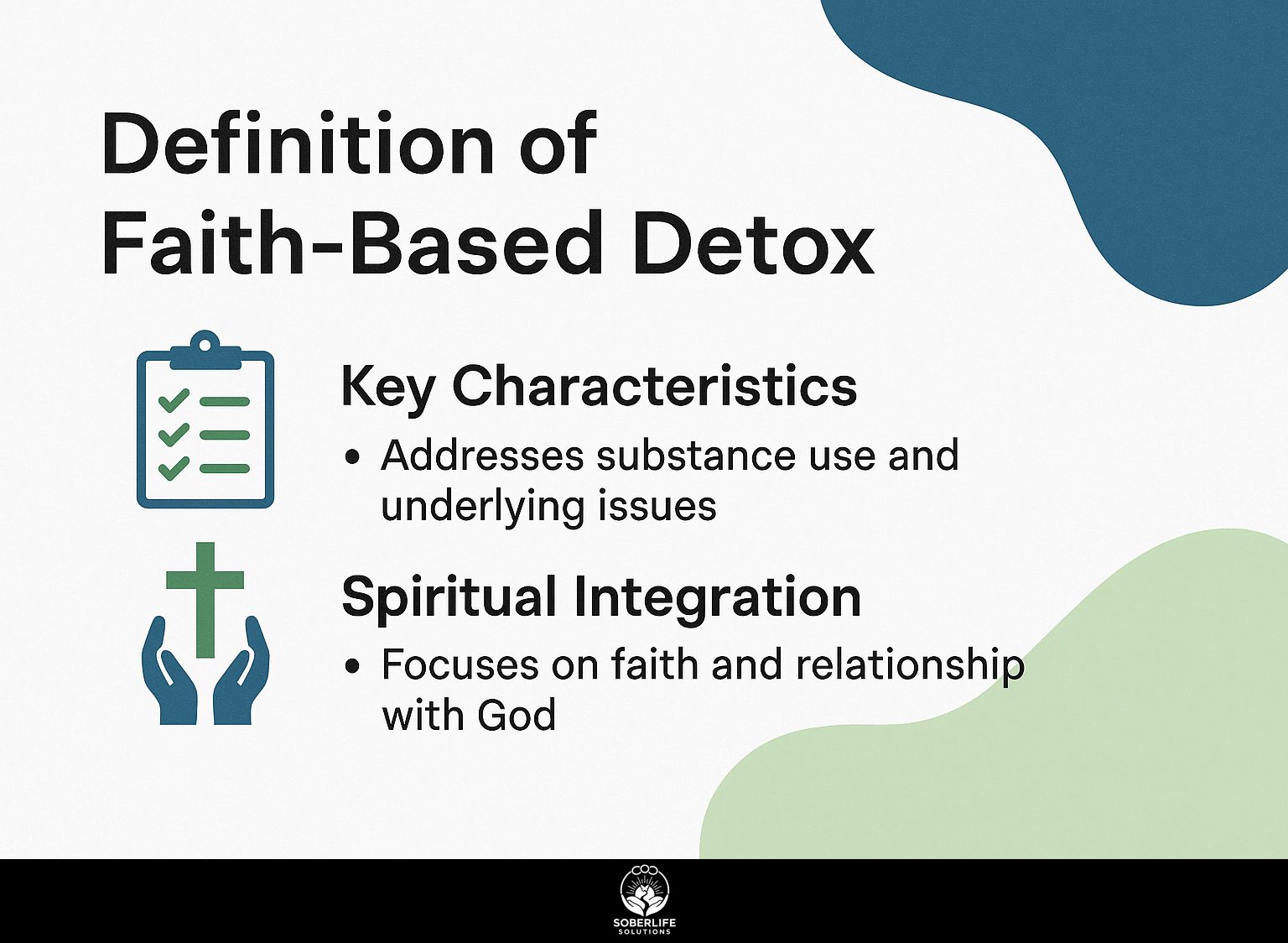
Faith-based detox involves using spiritual aspects along with regular addiction treatments to help people with substance use disorders. This approach is particularly relevant given the complexities of substance use disorders, which the CDC notes require comprehensive treatment strategies.
Key Characteristics
Key characteristics of faith-based detox include a focus on spiritual practices, community involvement, and evidence-based treatments for addiction.
These programs usually combine behavioral therapy with spiritual guidance to support complete recovery.
For example, The Salvation Army’s Adult Rehabilitation Centers combine evidence-based interventions, like Cognitive Behavioral Therapy (CBT), with spiritual discussions. This method tackles the mental side of addiction and promotes personal development with help from the community.
People attend group meetings that build a sense of community and accountability, which are important for continuous recovery.
Spiritual Integration
Including spiritual aspects in detox programs focuses on a person’s connection with a higher power, which plays an important role in the recovery process.
Many programs have successfully included spiritual practices to strengthen recovery. Alcoholics Anonymous suggests using prayer and meditation as key practices, urging members to look for help from a higher power.
In the same way, The Salvation Army’s rehabilitation centers focus on group worship and service as ways to bring about change. Meditation programs such as Mindfulness-Based Relapse Prevention (MBRP) help people develop awareness and acceptance, building strength to resist cravings.
When people include these spiritual elements, they often find more meaning and support in their recovery process, building stronger community ties and personal resilience. In fact, NAMI highlights the mental health benefits of incorporating spirituality, reinforcing the connection between spiritual well-being and successful recovery.
Approach of Faith-Based Detox Programs
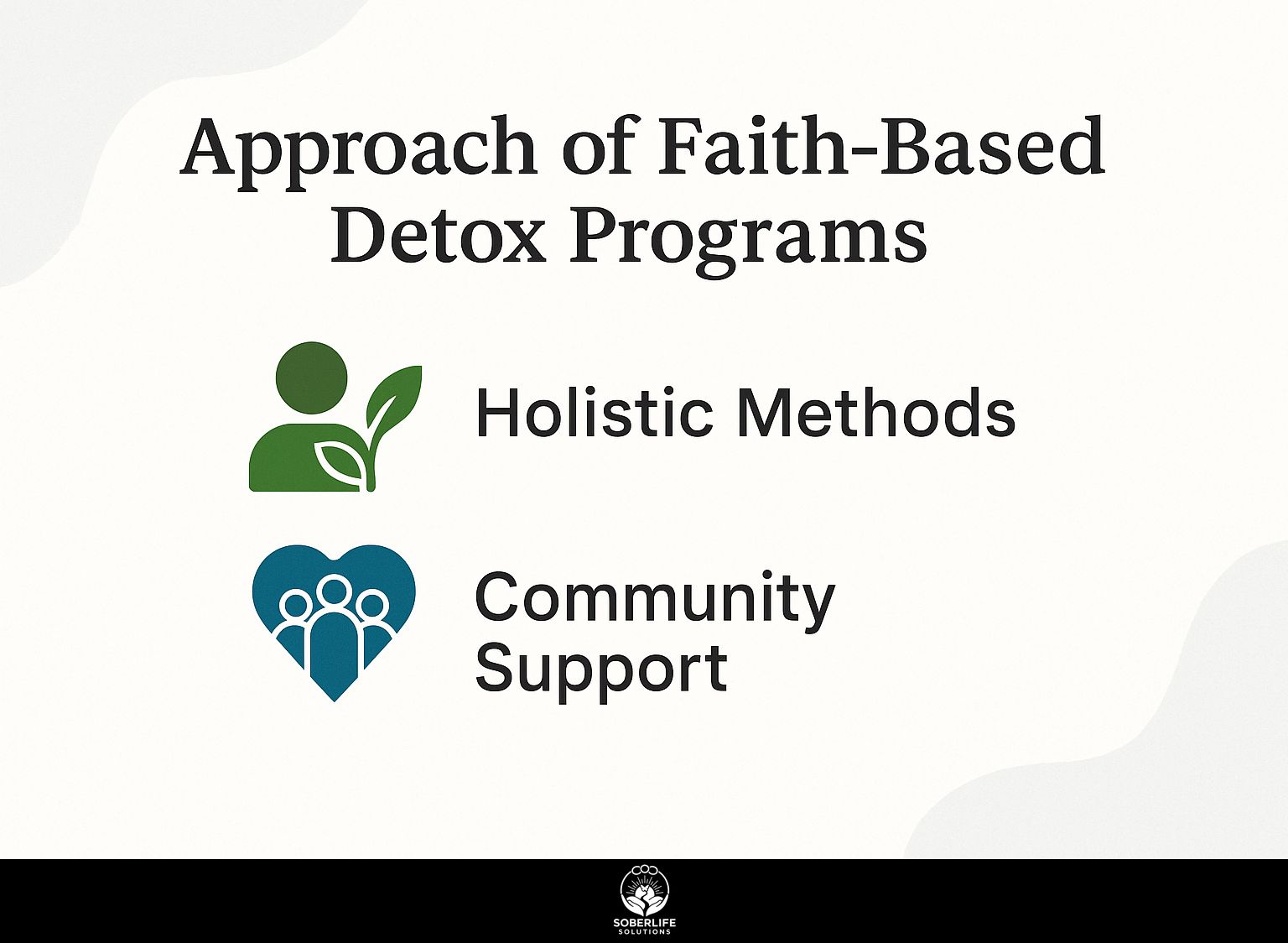
Faith-based detox programs use a complete method that deals with the emotional, mental, and spiritual needs of people recovering from addiction. If you’re interested in understanding the essential factors to consider when choosing such a program, you might find our insights on how to choose a detox center particularly useful.
Holistic Methods
Faith-based detox programs use a complete approach that combines mental health strategies like cognitive behavioral therapy with spiritual guidance.
Mindfulness practices such as meditation and deep-breathing exercises are integral, helping individuals better manage stress and emotions.
Programs like Celebrate Recovery or SMART Recovery use mental health techniques and spiritual support to help people quit addiction.
Support groups often include family participation, building community connections and offering a network for accountability.
Spending 15-30 minutes daily on these techniques can greatly improve resilience, resulting in a fuller recovery experience.
Community Support
Help from the community is important in faith-based detox programs. It offers encouragement and shared experiences during recovery.
Programs like Celebrate Recovery highlight the impact of communal support, boasting a 70% success rate among participants. Connecting with people who share similar challenges helps keep you responsible and motivated.
Many religious groups use online discussions and local gatherings to provide a safe place for sharing stories and tips. For example, holding weekly small group meetings can improve personal relationships and provide emotional support (you can learn more about the sober support systems that help strengthen these networks).
Studies show that individuals who actively participate in group discussions are 50% more likely to stay sober in the long term, emphasizing the importance of these support networks. Research published in Nature indicates that support provision can significantly enhance recovery outcomes.
Benefits of Faith-Based Detox Programs
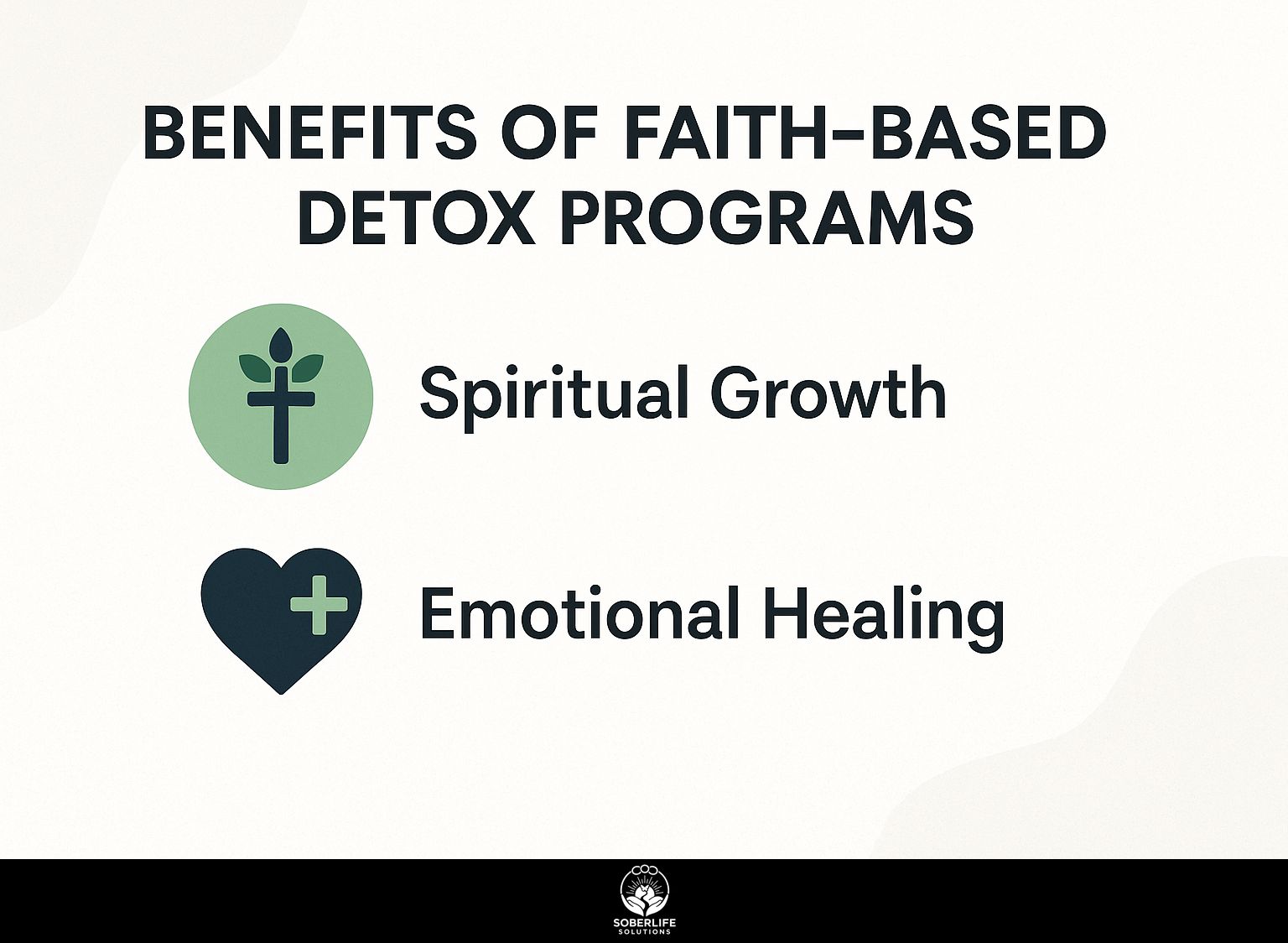
Faith-based detox programs offer many benefits, such as increased spiritual development and emotional recovery, which are important for successful recovery. In particular, engaging in faith-based counseling for alcoholism recovery can significantly enhance the emotional and spiritual aspects of healing, offering a comprehensive approach that aligns with personal beliefs and values.
Spiritual Growth
Joining a detox program centered on religious beliefs helps people grow spiritually, find meaning in their lives, and lessen the desire to use substances to cope.
People often try activities like daily meditation, prayer, and journaling to develop awareness and connect with their spiritual beliefs.
Many people say their lives have changed a lot, like Sarah, who gained focus and calm through morning prayers. She says, “I now start each day with purpose instead of disorder.”
Group discussions encourage sharing personal testimonies, creating a supportive environment where participants witness collective growth.
Tools like guided meditation apps or community support groups can make this process better, allowing for more comprehension and social connections with others on similar paths.
Emotional Healing
Emotional recovery in faith-based detox focuses on dealing with mental health problems through behavior therapy and support from peers, building strength.
Counseling sessions often employ cognitive-behavioral techniques to help individuals reframe negative thoughts and cope with triggers.
For example, a case study showed that participants engaging in weekly therapy reported a 40% reduction in anxiety symptoms after three months.
Peer support groups are important because they allow people to share experiences, which helps them feel understood and supported. A study indicated that individuals active in such groups had a 50% higher likelihood of maintaining sobriety long-term.
Together, these methods offer a complete way to recover, helping with significant emotional healing.
Comparison with Traditional Detox Programs
Comparing faith-based detox programs with traditional detox methods highlights significant differences in approach, philosophy, and outcomes.
Faith-based detox programs, like Teen Challenge, emphasize spiritual growth alongside physical recovery, incorporating prayer, biblical teachings, and community support into their treatment.
In contrast, traditional programs such as those offered by Hazelden rely more on evidence-based therapies and medical supervision.
Success metrics also diverge: faith-based programs often measure recovery through spiritual milestones, while traditional detox programs focus on clinical outcomes, such as relapse rates and psychological evaluations.
This distinction shapes the user experience, appealing to individuals based on their values and recovery goals.
Challenges and Considerations
Faith-based detox programs have many benefits, but they also face specific challenges that require careful thought to provide effective treatment.
These challenges include integrating spiritual beliefs with clinical practices, which can be addressed by collaborating with mental health professionals who respect these values.
Ensuring quality care requires continuous staff training in both addiction treatment and spiritual guidance. Tackling stigma is important; programs can organize community meetings to inform people about recovery choices.
For example, working with local churches on awareness campaigns can make conversations about addiction and recovery more common, creating a more supportive setting for people looking for help.
Success Stories and Testimonials
Success stories and testimonials from participants provide powerful evidence of the effectiveness of faith-based detox programs in overcoming addiction.
One individual shared that after completing a faith-based detox program, he experienced a 75% reduction in cravings, highlighting the importance of spiritual support during recovery.
Another participant noted that their relapse rate dropped from 80% to 20% after attending regular support group meetings integrated into the program.
A mother said she felt more hopeful and connected, which greatly improved her dedication to staying sober.
These testimonials reflect the programs’ unique blend of spiritual guidance and community support, proving essential for lasting recovery.
Frequently Asked Questions
What is a faith-based detox program?
A faith-based detox program is a treatment approach for addiction recovery that combines traditional detox methods with spiritual and religious principles.
How does a faith-based detox program differ from traditional detox programs?
A faith-based detox program includes spiritual and religious practices, such as prayer and meditation, in the detox process, while traditional detox programs concentrate only on medical and psychological treatment.
What religions are usually included in detox programs based on faith?
Faith-based detox programs can include different religious beliefs, such as Christianity, Judaism, Islam, Buddhism, and others. The specific religious practices used may vary depending on the program.
What are the benefits of a faith-based detox program?
Some potential benefits of a faith-based detox program include a deeper sense of purpose and connection, increased social support from a faith community, and a greater focus on maintaining sobriety through spiritual strength.
Is a religious-based detox program suitable for all individuals?
A detox program based on faith might not be suitable for everyone. People should pick a program that matches their personal beliefs and values. Talk to a doctor about all treatment choices before deciding.
Are faith-based detox programs effective?
There is limited research on the effectiveness of faith-based detox programs specifically, but incorporating spiritual and religious practices into addiction treatment has shown to have positive outcomes for some individuals. It is important for individuals to find a program that works for them and their individual needs.


